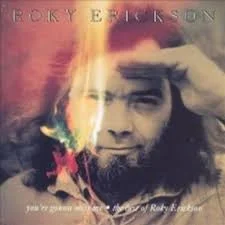D&D and Gaming While Adult
Currently I’m running one D&D Campaign and playing in another. Like writing though, the ideas for new campaigns keep coming, much faster than my available time, made exponentially worse by the fact that roleplaying games being a group activity requires that several people’s schedules… several adult’s schedules… line up. The phrase “Gaming while adult” is spot on for the difficulties it implies. But it doesn’t mean I don’t want to play more often, just like not having time to write every story that comes into my head doesn’t mean I don’t wish I could somehow write them all.
Fortunately D&D makes it easier than some other games. The nature of the D&D or other fantasy games are often simpler to run than other games. For instance, I was running a home-brew rules game with a storyline that was basically a cross between the shows Fringe and Twin Peaks. It was a fun and amazing setting to play in, but also the real-ish world has more complexity to it than a fantasy setting. It’s more difficult to predict what the players will do in an open ended/could potentially go anywhere world. Plus, I think, players are more likely to role-play avoiding risk in a “real” world setting than in D&D. Knowing there are armed or non-natural people in a building in the “real” world, players are tempted to call for backup or try and avoid the situation. Players have fewer qualms about heading into the Tomb of Certain Death in D&D: there must be good treasure in a place named like that.
Also the advantage of D&D is that a successful session is often defined by a fun encounter. In my Fringe Peaks game, a good session involved uncovering information. Both things can feel extremely rewarding for the players, but a difficult D&D fight is usually a lot less time consuming than a lot of story based engineering.
That’s not to say that D&D adventures can’t be weird or story based. In one campaign I ran recently, for what was meant to be sort of a side adventure, I heavily borrowed from Cody Goodfellow’s excellent short story “Coil Of The Ouroboros.” The players explored a wizard’s tower only to find that the wizard had been imprisoned in one of a series of snow globe like contained magical worlds. That adventure ended up heavily altering the theme of the campaign until the players came to realize that for at least a couple of adventures they were in a snow globe version of Faerun. This campaign went on to involve some hugely meta moments, speculation about types of universes, a lot of quoting Syd Barret’s lyrics… Anyway, there was a lot more to it than tactical encounters, but it still benefited from many nights where I could fall back on setting up a good fight: both because it saved me time as a DM and because it helped keep the pacing from turning into a slog of the player wondering what to do next.
Speaking of pacing, another key I’ve found about gaming while adult is the necessity to skip things in the game that don’t require the decisions of the players. When I was younger and had more time I would have wanted the players to experience the entirety of the journey. After all running across half of Middle Earth was pretty key to what made Lord of the Rings so awesome. But as an adult I recognize how precious those few hours or hour singular, we have to play together are, and I don’t want to get bogged down in the determination of marching order for the fourth straight night of a march. “After two nights you arrive at…” feels like a perfectly acceptable thing for a DM to say.
Technology has also helped. The advent of email has made it easier to advance things that don’t have to be decided at the table via direct communication.
And of course all this thinking about gaming, just has me moving towards my real favorite activity, unnecessary vast sums of world building. Time to cue up my Fantasy Soundtracks playlist, and get carried away.


